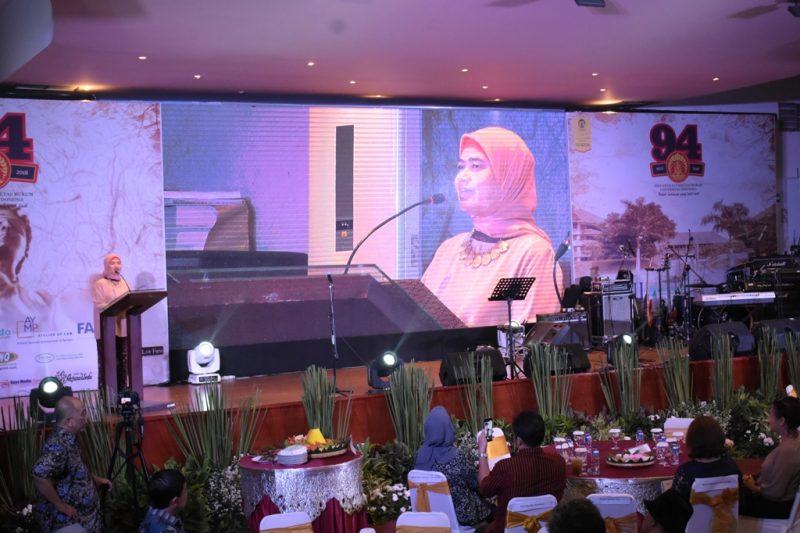Highlights from the 94th FHUI Anniversary Celebration
The Faculty of Law of Universitas Indonesia has officially turned 94 years old on October 28, 2018. To commemorate the age of 94, the Faculty of Law held the 94th FHUI Anniversary Month which has been held from October 1 to October 28, 2018. The peak event took place on Sunday, October 28, 2018, which was celebrated with various events, such as mass gymnastics, film screenings, door prize distribution, tumpeng cutting and music stage which presented Law Performance, Genetic Band, Perfilma Acoustic, Prof.Dr. Agus Sardjono, SH, MH, Vocademia UI, Gabriel Damanik and Ikke Nurjanah.
During its journey from October 28, 1928, to the present time, FHUI continues to produce qualified graduates and also produces reliable thinkers who continue to build and uphold the law in Indonesia. Not only that, FHUI has also given birth to law and human rights fighters, such as Prof. Dr. Todung Mulya Lubis, SH., L.LM. and Prof. Dr. Sulistyowati Irianto.
For 94 years, the academic community of FHUI has continuously contributed to the development of Legal Education through the Tri Dharma of Higher Education, namely Education, Research and Community Service.
For this reason, the 94th Anniversary of the Faculty of Law brought the theme “FHUI for a better Indonesia”. It is hoped that this Anniversary will be a moment to remind the contribution of all academicians to continue contributing to the enforcement of legal milestones in Indonesia.
As the peak event of this celebration, a film screening of “Disclosure” was also held. This film is the first film produced by FHUI involving the FHUI academic community as a director and casts. The film tried to convey a message to continue to fight for justice even though it must face various obstacles.
In addition to the screening of the first film produced by FHUI, in the 94th Anniversary, a book was launched, “Percikan Pemikiran Makara Merah Dari FHUI untuk Indonesia“, which was a collection of selected writings from a number of lecturers and alumni. This book is expected to be used as a scientific reference for the community and especially policymakers and law enforcement, academics, researchers, NGOs, government agencies and people’s representatives who sit in the DPR / DPRD / DPD.

